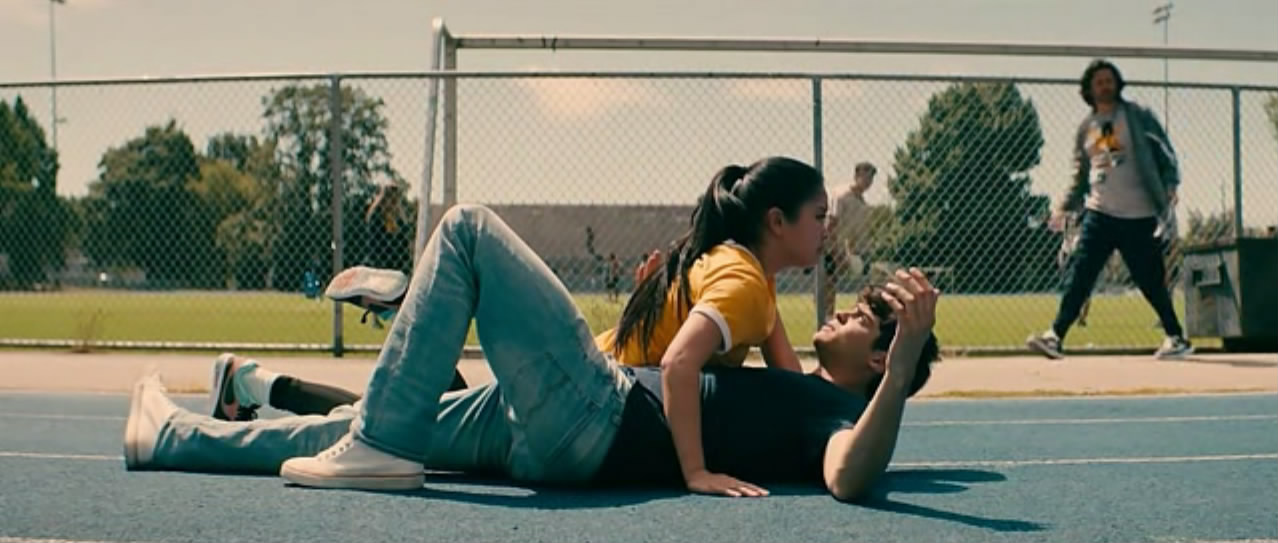Here’s a film that makes me want to Sing Sing. And it’s not even that the film was so entertaining; it is the endearing premise of the perpetually condemned not giving up on themselves. This is a classic “feel good” film: There is an understanding in Sing Sing that humanity exists even in the most unlikely of places, emanating from the most unlikely of sources. In a time when assholes chant, “LOCK HER UP!” like it’s the ultimate punishment, it warms my heart to know that being locked up, perhaps, isn’t as awful as having no soul.
Sing Sing refers to a maximum security prison in Ossining, New York, just 40 miles from NYC. The inmates -to a person- have been convicted of awful crimes. The inmates, by-and-large are guilty of the crimes they have been convicted of. They are being punished. Sing Sing isn’t about that stuff. The film focuses instead on the “Rehabilitation Through the Arts” in the prison. This program exists in real life, and aside from the star of the film (Colman Domingo) and the director of the play (Paul Raci), all the actors in the film are/were Sing Sing inmates.
Divine G (Domingo) is the de facto inmate leader of the troupe. There are troupe openings all the time, of course, due to parole and death (hopefully more of the former). And early in the film, Divine G IDs a potential co-actor in Clarence “Divine Eye” Maclin. -How many “Divines” are there in Sing Sing? Perhaps as many as there are Pink Flamingos in Hollywood- Maclin has requested inclusion in the troupe, but his audition is … unimpressive. Divine G and a partner espy Maclin shaking down a fellow inmate over a drug payment. Despite this, the troupe welcomes Maclin and adopts him.
For a time, it is hard to see the wisdom of the acquisition, and perhaps this is the strength of Sing Sing by itself – these men are all projects, and one has to sort out their value with patience and time. Maclin doesn’t fit in at first. He’s shifty and ill-at-ease. There’s a different vibe in the rec room where acting takes place. If these guys weren’t wearing prison-issued clothing, you’d never guess they weren’t a regular acting troupe. There’s no seething animosity or hostility here, understated or outward. Maclin’s behavior betrays an inner conflict other troupe members have left in the prison yard.
When Maclin continues down a road of angry self-involvement, we all question if Divine G made a huge error. G himself comes to this conclusion when Maclin is chosen for a dramatic role ahead of him. There is Divine satisfaction watching these two slooooooooooowly develop a relationship; this is the best part of the film.
There is question as to Divine G’s innocence. Well, that’s a misstatement; Divine G is innocent, which is a near impossible onus to carry in prison, I imagine; the RTA is his connection to sanity. My  question is if we feel more for him because he’s innocent, and why? I mean, of course we do, but why is that relevant? Do we care any less for the guilty? Or, better question, SHOULD we care less for the guilty? These are all men repaying their debt to society. Do we judge more harshly all those who have already been found wanting in a court? Why? Why does it matter? I’m not saying there’s a right or wrong answer here; my understanding is that Americans are almost entirely defined by which laws we choose to break. Yeah, there’s a difference between tax evasion and murder, but what about the dfference between tax evasion and drug dealing? I think the line is far blurrier than any of us pretend it isn’t. We also like to pretend there aren’t socioeconomic factors regarding criminal behavior and that white collar crimes are better than blue collar crimes. This is a different essay. For the purposes of Sing Sing, I merely question why it is important that our hero is innocent. Do we care about him less if he’s not?
question is if we feel more for him because he’s innocent, and why? I mean, of course we do, but why is that relevant? Do we care any less for the guilty? Or, better question, SHOULD we care less for the guilty? These are all men repaying their debt to society. Do we judge more harshly all those who have already been found wanting in a court? Why? Why does it matter? I’m not saying there’s a right or wrong answer here; my understanding is that Americans are almost entirely defined by which laws we choose to break. Yeah, there’s a difference between tax evasion and murder, but what about the dfference between tax evasion and drug dealing? I think the line is far blurrier than any of us pretend it isn’t. We also like to pretend there aren’t socioeconomic factors regarding criminal behavior and that white collar crimes are better than blue collar crimes. This is a different essay. For the purposes of Sing Sing, I merely question why it is important that our hero is innocent. Do we care about him less if he’s not?
There’s something truly inspiring -to me, at least- about the idea that being convicted of a felony and still having a soul. Sing Sing speaks to me in ways that not only other films do not, but society does not. We like to “lock ‘em up and throw away the key.” That is precisely how most of us think of the guilty, the incarcerated. The whole idea of this film, entirely about prisoners and yet not at the same time, is, hence, a divine one.
There once was inmate Divine G
Convicted of a harsh felony
His escape, it seems
Was though acting dreams
Prison also exists in mentality
Rated R, 107 Minutes
Director: Greg Kwedar
Writer: John H. Richardson, Brent Buell, Clint Bentley
Genre: Movies that make you smile
Type of being most likely to enjoy this film: Sing Sing inmates
Type of being least likely to enjoy this film: The kind of person who argues that convicted felons should never be allowed to vote



